Site Search
Displaying results 131 - 140 of 391
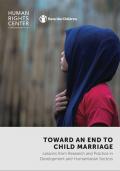
Resource | Publications,
The purpose of the study is to gather findings from efforts to prevent and respond to child marriage in both development and humanitarian contexts and determine what Save the Children and other organizations can do to improve their response to this critical issue. The study adds to existing research by synthesizing the most up-todate literature, bringing the voices of practitioners and experts into the discussion, and examining the topic of child marriage interventions in a humanitarian context for the first time.
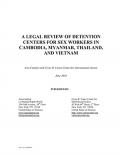
Resource | Laws and Policies,
At the request of Asia Catalyst, the Cyrus R. Vance Center for International Justice worked with two law firms and four local offices of these law firms to conduct a literature review on the legal provisions governing police arrests and compulsory detention of sex workers in Cambodia, Myanmar, Thailand, and Vietnam. Based on extensive research on the laws, regulations, and procedures available.
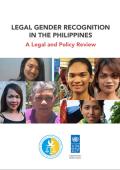
Resource | Laws and Policies,
The Legal Gender Recognition in the Philippines: A Legal and Policy Review is the cumulative result of the desk review of laws, regulations, and policies regarding legal gender recognition in the Philippines. It likewise included research into how these existing laws, regulations, and policies are implemented and how they impact or will impact on transgender people in the Philippines. The project also looked into local transgender community efforts and initiatives that could provide new platforms for asserting transgender rights or those which could open the doors for more enhanced collaboration among the various sectors.
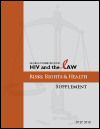
Resource | Publications,
In 2012, the Global Commission on HIV and the Law called on countries to outlaw discrimination, repeal punitive laws and enact protective laws to promote public health and human rights for effective HIV responses. Today more than 89 countries have taken action to repeal or reform laws: some have repealed laws criminalizing HIV, same-sex relations, and drug possession, and others have enacted laws advancing reproductive rights, sex education, and the human rights of people living with or at risk from HIV.
This Supplement highlights developments since 2012 in science, technology, law, geopolitics, and funding that affect people living with or at risk from HIV and its coinfections. The recommendations add to and amplify those of the Commission’s 2012 report Risks, Rights & Health, which remain as relevant as they were six years ago.
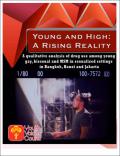
Resource | Publications,
The purpose of this study was to collect data on the "high-fun" realities of young gay, bisexual men and other young men who have sex with men in three major cities in the region; Bangkok, Hanoi and Jakarta. The cities were selected depending on available data on drug use.
This is a qualitative study undertaken by Youth Voices Count as a regional network and serves the purpose of collection of data to inform future interventions and advocacy of YVC on and for young gay, bisexual men and other young men who have sex with men who use drugs in sexualized settings. This study is by no means a scientific study of this phenomenon.
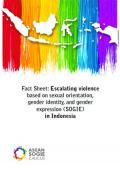
Resource | Fact Sheets,
This fact sheet provides an overview of the situation faced by LGBT persons in Indonesia amidst increasing violence and hate perpetrated both by government and non-state actors. This is written for civil society organizations and other interested groups who need reliable and summarized information to guide them in developing their advocacy plans.
The increasing violence against LGBT people in Indonesia in recent years is unprecedented and "has left many in the country's LGBT community fearing for their safety." A prominent journalist commented that "the few voices defending the rights of LGBTs are being drowned out, or rather bullied, by the growing chorus that has turned the LGBT community into Indonesia's public enemy No. 1."
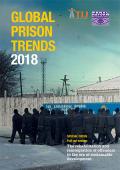
Resource | Publications,
Global Prison Trends 2018 is the fourth edition in Penal Reform International’s annual series, published in collaboration with the Thailand Institute of Justice. The report analyses trends in criminal justice and the use of imprisonment and, as in previous years, these show that while overall crime rates around the world have declined, the number of people in prison on any given day is rising.
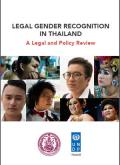
Resource | Tools,
The rights to self-determination and recognition before the law are fundamental human rights belonging to everyone without distinction including transgender people. However, the human rights of transgender people in this regard continue to be violated and disrespected across the world, in the Asian region and within Thailand itself. This report, Legal Gender Recognition in Thailand: A Legal and Policy Review has captured and explored the small number of laws, regulations and policies in Thailand that include transgender people within their scope and which may be relevant to legal gender recognition.
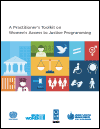
Resource | Tools,
This practitioners Toolkit on Women’s Access to Justice, developed by UNDP, UN Women, UNODC, and OHCHR provides evidence-based guidance for a coherent and consistent policy and programming approach to overcoming these obstacles. This guidance will help to ensure UN system coordinated responses when addressing legal and justice challenges that women face within the context areas of marriage, family, and property rights; ending violence against women; and women in conflict with the law. Designed primarily for staff of the UN system, the toolkit presents a menu of options for scaling-up work and responding to current deficits in women’s access to justice programming and the growing demand for technical assistance in this area. This toolkit consolidates and complements existing resources and aims at enhancing the impact of UN support by stimulating bolder gender-responsive justice interventions for the full realization of the rights of women and girls.
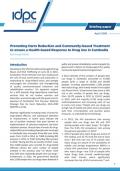
Resource | Publications,
Speaking on the UN International Day against Drug Abuse and Illicit Trafficking on June 26 in 2016, Cambodia’s Prime Minister Hun Sen emphasised the role of local communities and authorities in responding to drug-related issues, and strongly encouraged the promotion and strengthening of quality community-based treatment and rehabilitation services. His apparent support for a shift towards drug dependence treatment services that do not involve coercion and detention seemed to align with the government’s approval of Cambodia’s first five-year National Strategic Plan for Harm Reduction 2016-2020 (NSPHR) in 2016.





